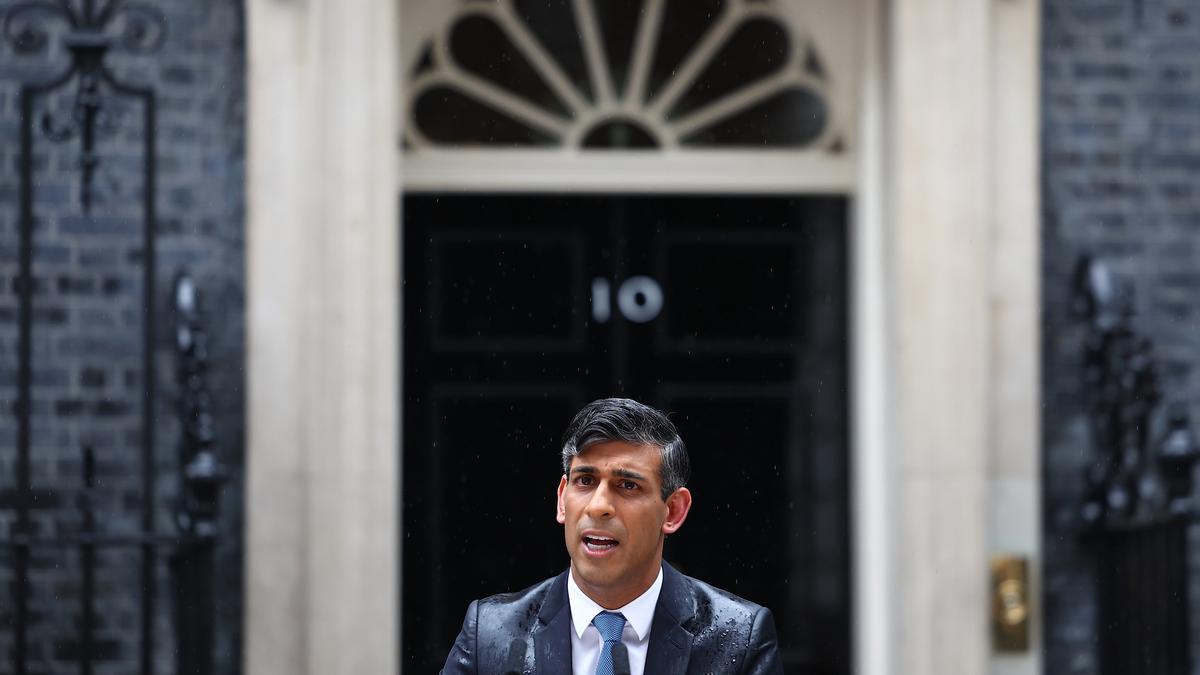U.K. Prime Minister Rishi Sunak announces the date for the general election at Downing Street on May 22, 2024 in London, England.
| Photo Credit: Getty Images
The U.K. will go to the polls on July 4 to elect a new parliament, Prime Minister Rishi Sunak announced on May 22, possibly ending a 14-year run of Conservative government that spanned five Prime Ministers.
Buoyed by news of inflation hitting a three-year low, Mr. Sunak took to a wet lectern in the pouring rain outside No. 10 Downing Street to announce the election and deliver what appeared to be a campaign speech.
“I came to office, above all, to restore economic stability ,” Mr. Sunak said, citing the recent inflation numbers and GDP growth figures.
“This is proof that the plan and priorities I set out are working,” he added.
The 44-year-old former banker of Indian descent, couched Britain’s electoral choices and the global context in stark terms: continuing with progress or entering a future without a plan.
“This election will take place at a time when the world is more dangerous than it has been since the end of the cold war,” he said, linking Russia’s invasion of Ukraine to energy prices. His speech touched on technology competition with China, the U.K.’s challenges with irregular migration, the conflict in West Asia and Islamist extremism, which he said was threatening regional and global stability.
“These tensions are exploited by extremists who seek to undermine our values and divide our society,”, he said.
Mr. Sunak accused the opposition Labour Party of not having a plan. “And as a result the future can only be uncertain with them,” he said, as he attacked Labour leader Keir Starmer.
Labour has been twenty points ahead of the Tories, on average, in opinion polls. Mr. Starmer has also been polling ahead of Mr Sunak in terms of favourability ratings.
Labour has moved closer to the centre under the 61 year old former lawyer including by distancing itself from its former left wing leader Jeremy Corbyn who now sits as an independent MP (while still a member of the party).
The answer is not five more years of the Tories,” Mr. Starmer said in a video response to the announcement, in which he also said that the only answer was a “changed Labour party”.
“The truth is the Conservative Party do face a major challenge,” political scientist John Curtice told the BBC on May 22.
“It’s a challenge not dissimilar to that [ former Conservative Prime Minister] John Major faced in 1997,” he added, referring to an election in which Labour, led by Tony Blair, won a landslide victory.
Mr. Curtice also cited Reform UK, the rightwing ‘Brexit’ party, as a real threat to the Tories.
The U.K. Parliament will now formally be dissolved by King Charles III on May 30.
